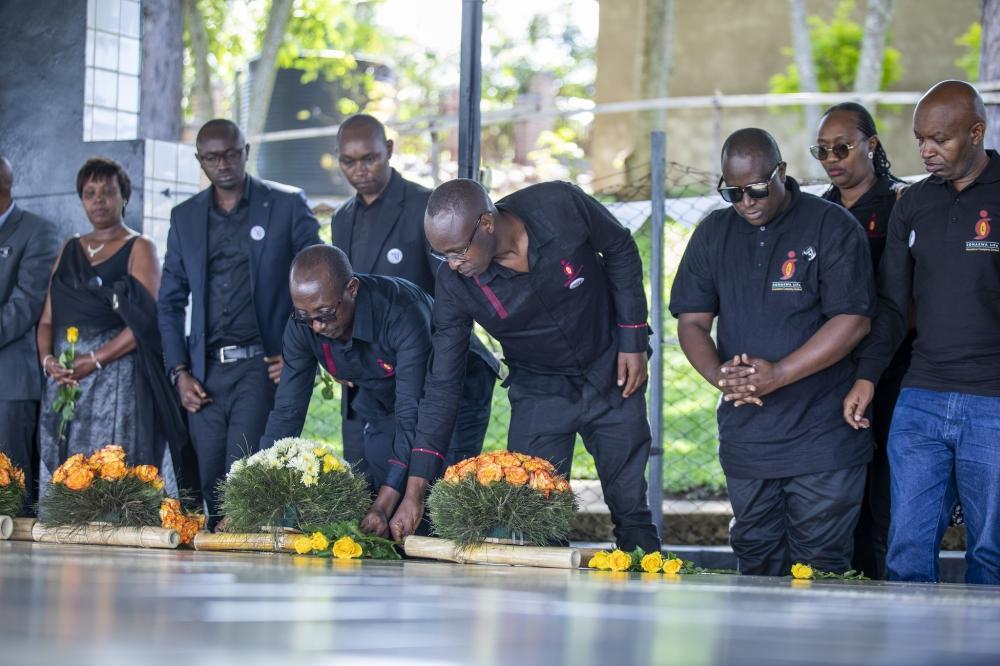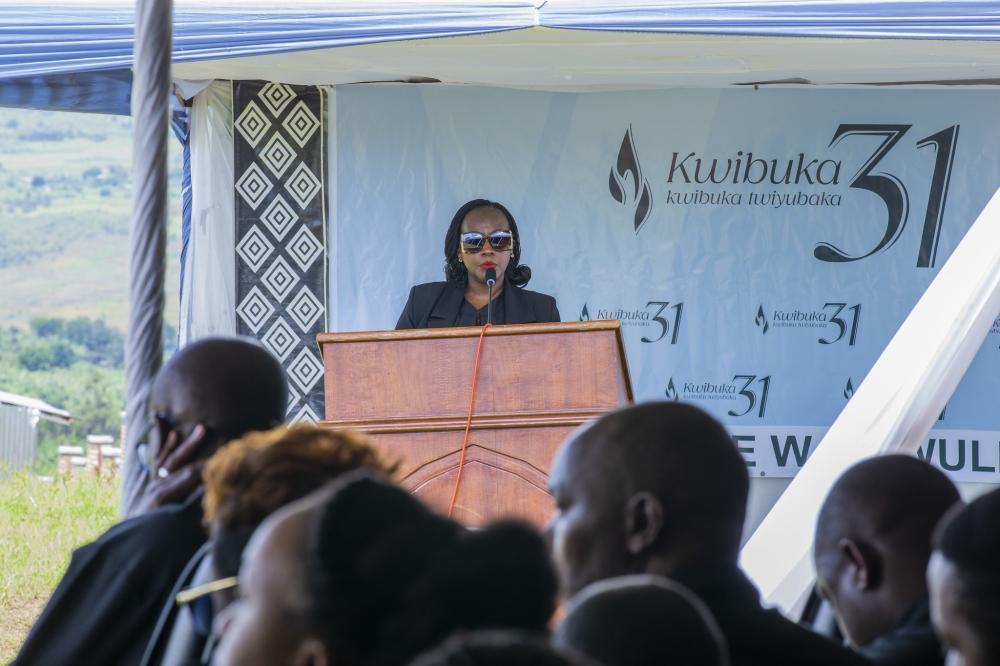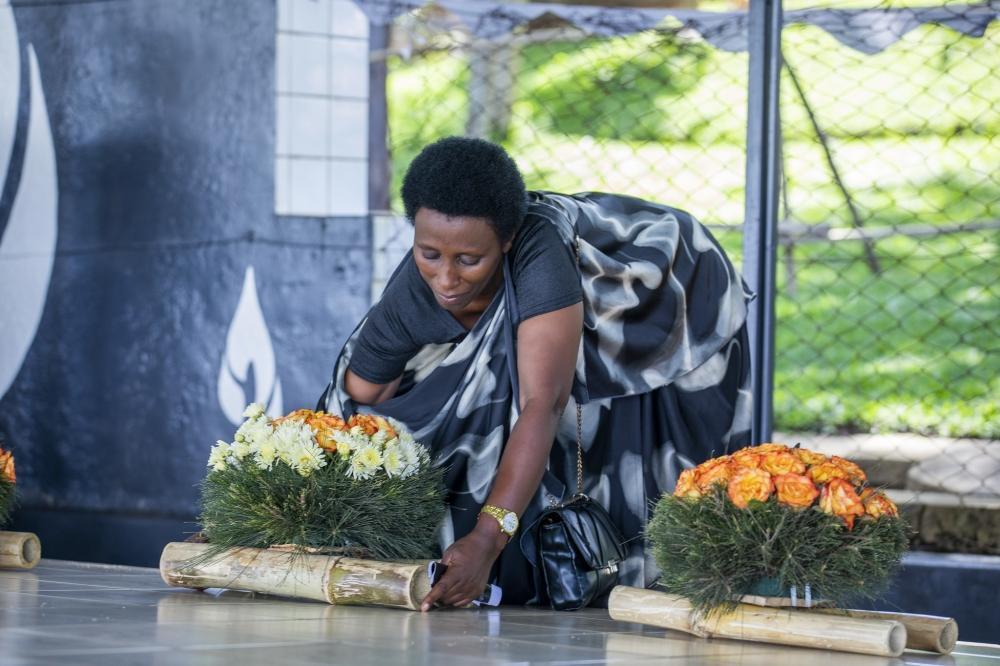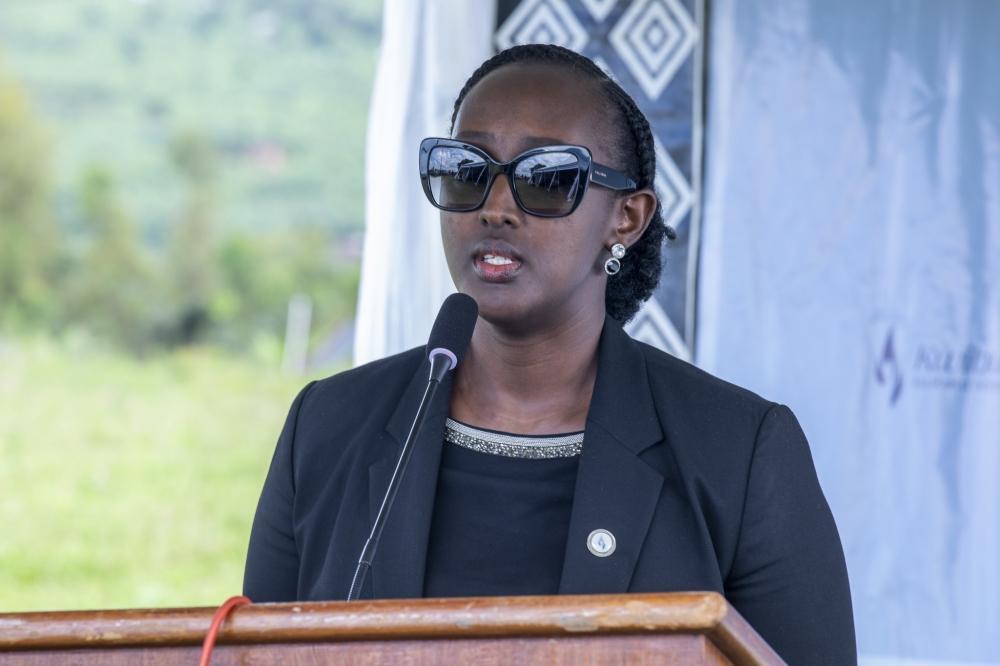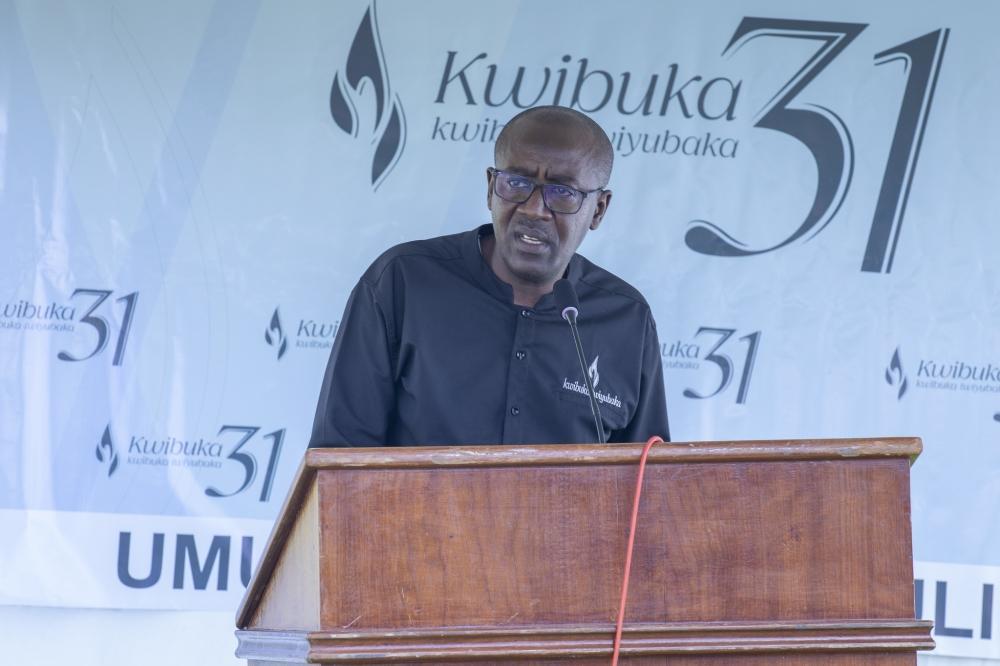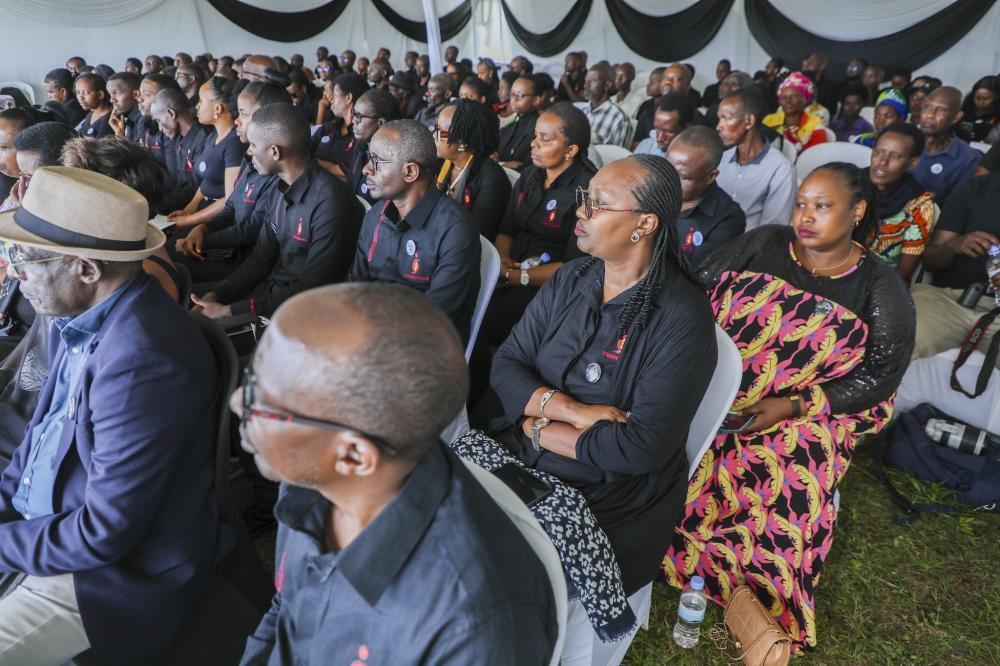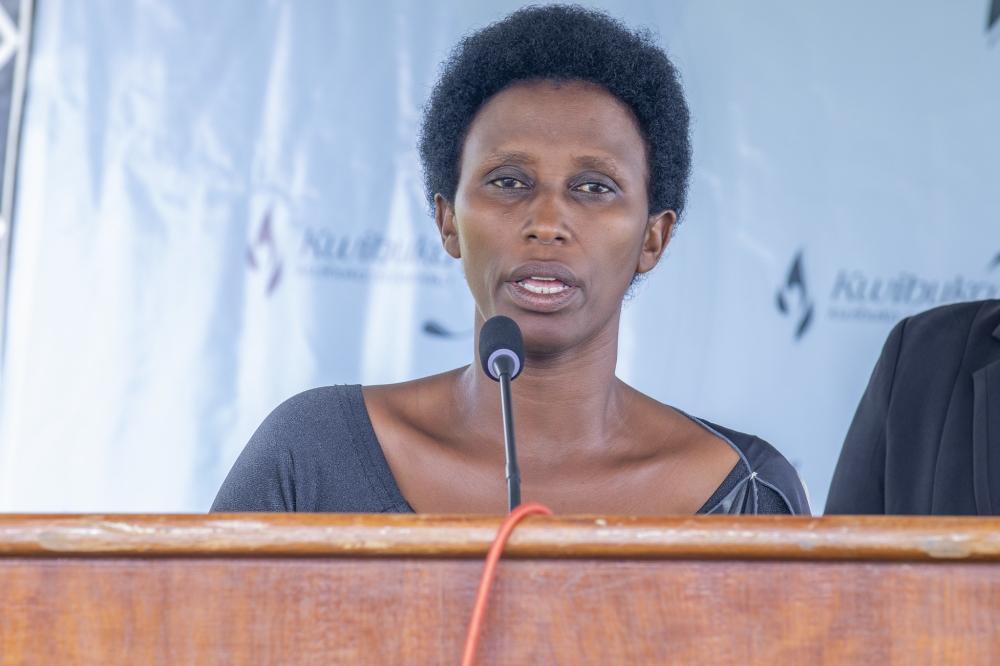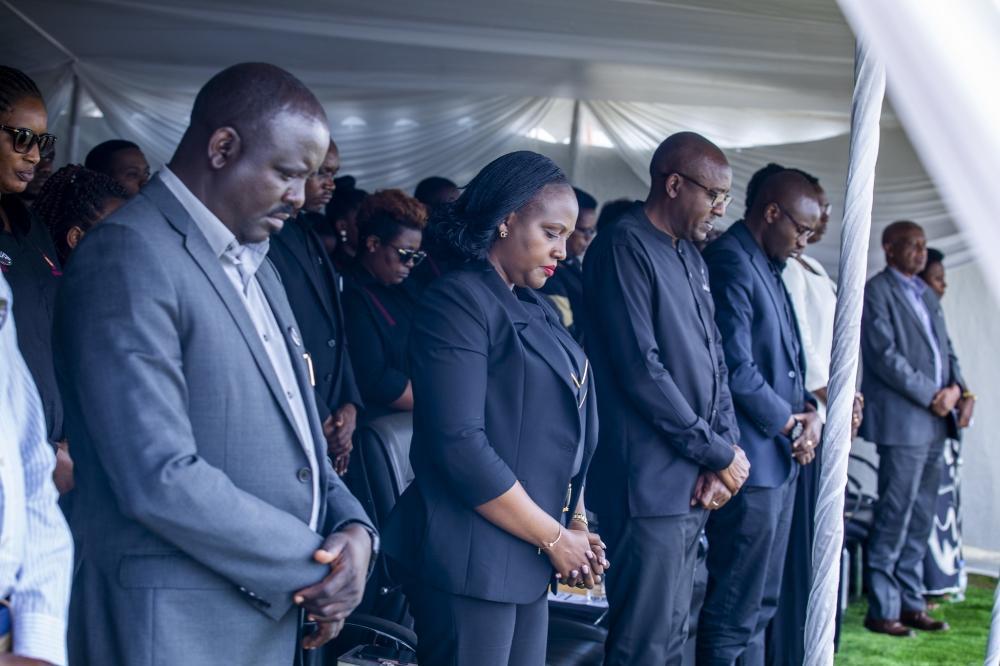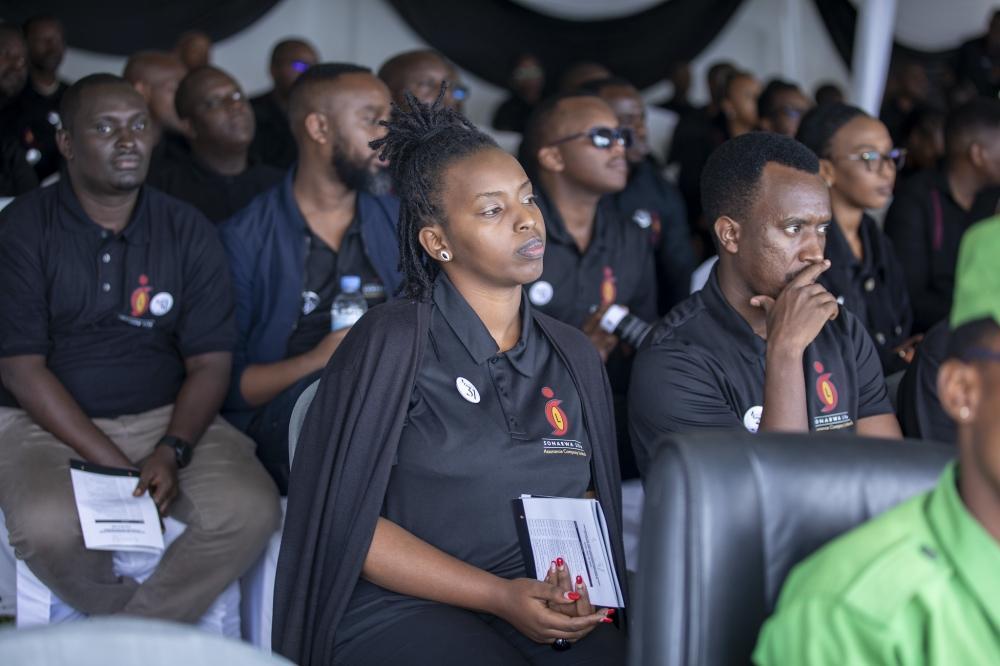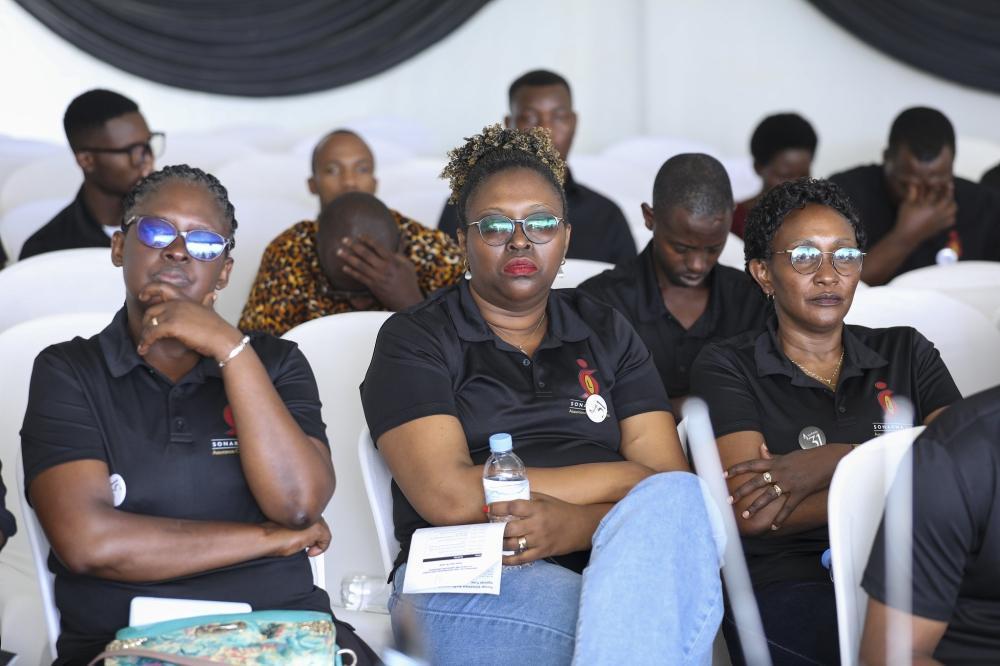Africa-Press – Rwanda. The management and staff of SONARWA General and SONARWA Life, on May 16, visited the Mwulire Genocide Memorial in Rwamagana District, where 27,184 Genocide victims are laid to rest.
The visit was part of the 31st Commemoration of the 1994 Genocide against the Tutsi.
Staff also paid tribute to former colleagues who were killed during the Genocide.
Charlotte Kamanzi, CEO of SONARWA General, commended staff for honouring nine former colleagues who were victims of the Genocide and for learning about the history of the atrocities.
Charlotte Kamanzi, CEO of SONARWA General, commended staff for honouring nine former colleagues
The victims included Liberatha Nyirantamati, a dactylographer and secretary in the commercial department, Claudine Kayirangwa, an archivist in the life insurance service, Innocent Karangwa, a computer scientist, Charles Musoni, a bailiff in the secretariat and archivist in the legal department, Désiré Nshunguyinka, head of the legal service and chief service agent in people’s insurance services, Henriette Nyiraneza, a cashier, Beatrice Mukobwankabandi, head of switchboard, production, and transport, Clémentine Mugorewigaju, service manager in the production and transport department and Jeannette Umutesi, a receptionist.
“They were innocent people and victims of a discriminatory regime,” Kamanzi said.
“We appreciate our staff for commemorating the victims and supporting their families and friends. We thank the survivors for their resilience as they remember and renew. SONARWA staff must be exemplary in combating genocide ideology and denial. We are grateful for the leadership of President Kagame and the RPF Inkotanyi for stopping the Genocide and laying the foundation for our development.”
The staff also learnt about the history of the Genocide against the Tutsi and Belgium’s role in sowing divisionism among Rwandans.
At the memorial site, Annonciata Uwizeyimana, representing families of SONARWA’s Genocide survivors, shared her testimony, including the story of her husband, a SONARWA employee who was a victim of the Genocide.
“There was a lot of discrimination against Tutsi in workplaces and schools,” she said.
Egidie Mukarubuga, a Genocide survivor on Mwulire hill, addressed SONARWA staff and management, recounting how she survived on the hill.
Egidie Mukarubuga, a Genocide survivor on Mwulire hill lays awreath, recounting how she survived on the hill
“Men resisted the Interahamwe militia. Children, women, and the elderly supplied stones to help in the fight. However, police and soldiers of the then-regime intervened and killed thousands of Tutsi. I was among the very few who survived. I hid among the bodies of the dead until the RPF Inkotanyi rescued me and took me to the hospital—my neck, head, and arms were severely injured,” she said.
Dianah Mukundwa, CEO of SONARWA Life, also called for a continued fight against genocide ideology.
“We must continue to fight against genocide denial. We have learnt a lot about the history of the Genocide at the Mwulire Memorial. This knowledge will help SONARWA Life and SONARWA General staff to actively combat denial and ensure such atrocities never happen again,” she said.
Dianah Mukundwa, CEO of SONARWA Life, also called for a continued fight against genocide ideology
She also expressed deep gratitude to the RPF Inkotanyi and its Chairman, President Paul Kagame, for “the heroic liberation of our country and the visionary leadership that has transformed Rwanda into the resilient, united, and forward-looking nation we are proud to call home today.” She also appreciated the community at Mwulire and its leadership for the resilience and development they have achieved thus far.
Dative Musabyeyezu, a representative of Ibuka—an umbrella organisation of Genocide survivors in Rwamagana District—emphasised the importance of resilience and trauma healing.
“We must strive to sustain Rwanda’s achievements in resilience and national reconstruction. We also urge people to share any information about the whereabouts of Genocide victims who were dumped in different locations,” she said.
Radjab Mbonyumuvunyi, the Mayor of Rwamagana District, praised SONARWA staff for their commitment to remembrance.
“Remembering is the duty of every Rwandan with a heart. We remember to pay tribute to our loved ones who were killed during the Genocide. SONARWA staff and management have gained valuable insights into the local history of the Genocide.”
He noted that Rwamagana District hosts 11 Genocide memorial sites, including Mwulire, which alone holds the remains of over 27,000 victims.
“Having 11 memorials demonstrates the extent of the atrocity in this area. Leaders of four former communes oversaw the killings and were subsequently prosecuted and sentenced,” he said.
To improve preservation and standardisation, the number of Genocide memorials in Rwamagana is set to be reduced from 11 to six through consolidation.
According to Mayor Mbonyumuvunyi, approximately Rwf 1.8 billion is required to build a new, modern memorial where victims’ remains from the older sites will be relocated. SONARWA has made a pledge to support the construction of the new memorial as part of this year’s Kwibuka contribution.
The consolidation aims to address the shortcomings of existing sites, many of which lack proper roofing and are vulnerable to rain damage. The new memorial is being developed in three phases.
Radjab Mbonyumuvunyi, the Mayor of Rwamagana District, praised SONARWA staff for their commitment to remembrance
The commemoration of former SONARWA staff took place at Mwulire Genocide memorial
Egidie Mukarubuga, a Genocide survivor on Mwulire hill, recounting how she survived on the hill
Mourners observe a moment of silence in honour of the victims of the Genocide against the Tutsi
For More News And Analysis About Rwanda Follow Africa-Press

